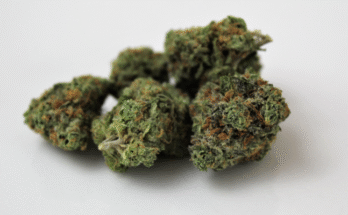When a person who regularly consumes weed stops using it, they are likely going to experience specific negative symptoms of cannabis withdrawal that will affect them both physically and psychologically.
In one recent study, published in the journal Addiction in 2021, researchers found that withdrawal symptoms affect over half of medicinal cannabis users.
Researchers from the National Institute on Drug Abuse (NIDA) wrote that symptoms of cannabis withdrawal are “much less severe than those associated with withdrawal from chronic opioid or depressant use,” in this study from 2015.
However, they concluded with, “but aversive enough to encourage continued cannabis use and interfere with cessation attempts in some individuals.”
Why does cannabis cause withdrawal symptoms?
One of the greatest beliefs among many weed smokers is that it is basically impossible to become addicted to cannabis, or a person can easily stop at any given time.

However, that isn’t always the case.
Frequently consuming cannabis results in your brain and body becoming accustomed to a regular flow of THC. This, in turn, increases your tolerance, meaning you need more of the substance to get the same effects. This cycle can result in increased use and dependance.
As soon as the supply of THC stops, it can lead to uncomfortable physical and psychological withdrawal symptoms. This is your body adjusting to a lack of THC intake.
Read: Is Cannabis Addiction Real?
Cannabis withdrawal symptoms
Cannabis withdrawals effects each individual differently. Variables include the amount of THC you consume daily, how long you’ve been consuming, current health status, and many other factors.
The most common cannabis withdrawal symptoms include:
- Sleep problems
- Night sweats
- Decreased appetite
- Stomach ache
- Irritability
- Increased aggression
- Vivid dreams
- Low mood or mood swings
- Cravings for cannabis
- Lack of mental clarity
Withdrawal timeline
Based on this study, symptoms typically start within the first two days of quitting and stop within four weeks.
Week 1
Withdrawal symptoms start which can include irritability, anxiety, and sleep problems to name a few.
Week 2
Within 10 to 14 days is when symptoms hit their hardest, and can also be the most difficult period of time to abstain from taking cannabis.
Week 3
Withdrawal symptoms start to decline at this point, but you may still experience some cravings.
Week 4
Cannabinoid receptors in the brain start functioning normally and withdrawals come to a close.
How to ease the effects of cannabis withdrawal

As mentioned earlier, quitting or taking a break from cannabis is a different experience for everyone.
But it’s always a great idea to implement some healthy habits that will help you treat the effects of withdrawals, and may even be something that you continue to do well into the future.
- Staying hydrated
Drinking plenty of water is overlooked massively – staying hydrated can improve many areas of your life, especially if you’re experiencing withdrawals from weed.
- Exercise
Implementing a steady exercise routine can be a sweet trade for the time you’d be spending getting high.
It doesn’t mean you have to become a bodybuilder, but a small jog, going for a bike ride, and walking all counts as exercise.
In fact, just 15 minutes of strength training each day is enough to boost your natural endocannabinoid levels and reduce pain and inflammation, according to a this study.
- Practicing mindfulness
Meditation, yoga, and deep breathing exercises can be extremely beneficial in helping you ease the symptoms of cannabis withdrawals.
Additionally, there is a ton of readily available information on the effects of focused breathing and meditation has on your overall mood and it’s ability to decrease stress and anxiety.
- Maintaining a healthy diet
Reducing processed food intake and increasing home-made, whole-food based meals is proven to help raise your energy levels – which you may experience a lack of during cannabis withdrawals.
- Trading THC for CBD
While it may seem silly to turn to another cannabinoid while trying to abstain from cannabis, CBD is very different from THC.
CBD doesn’t possess the same psychoactivity as THC, and it’s also beneficial for lowering anxiety, stress levels, and inflammation. This study found that daily doses of CBD can lower the amount of cannabis consumed by patients with cannabis use disorder.

Overcoming cannabis addiction
If you are interested in this subject, you’ll finds mores details on methods to help reduce cannabis withdrawal symptoms and THC consumption in this book, Overcoming Cannabis Dependence, as well as a number of other cutting edge techniques that will helped you cultivate a healthy relationship with cannabis.




